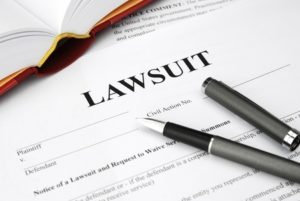
If you have been injured in an auto accident caused by another driver, there are several legal options available. Most cases are settled before reaching trial through negotiations and compromise. In fact, only about 2 percent of injured people end up filing a lawsuit, according to the Rand Institute for Civil Justice. Usually, with a good claim, the injured person is best compensated through a negotiated settlement. However, sometimes the parties are unwilling to agree on an amount and the case proceeds to trial.
Should I File a Lawsuit or Settle?
When weighing the merits and drawbacks of filing suit, also consider the effect of the jury on your case. Juries are sometimes biased, arriving at the verdict based on personal preferences for one party or another. The jury system is good, but it is far from perfect – one or two jurors can sway the entire panel.
Finally, keep in mind that trials usually cost thousands of dollars and require the services of a lawyer. As the plaintiff, you or your lawyer must pay for expenses such as filing fees, legal messengers, court reporters, travel, and expert witnesses, among others. Of course, the lawyer must also be compensated for his or her work on your case.

How Do I File an Auto Accident Injury Lawsuit?
Once you decide to file a lawsuit, commencing the action is not complicated. To begin, you need to file a complaint and serve a summons to the defendant.
A complaint explains what the claim is about, including the parties, why the defendant is being sued, and the remedy being sought. For auto crashes, the complaint states the parties, their addresses, and where the incident took place. Usually the complaint will allege that the defendant failed to exercise reasonable care operating his or her vehicle and caused injuries to the plaintiff. Finally, a remedy is sought that will compensate the plaintiff for past and future economic loss and other damages, such as pain and suffering or lost wages.
The summons to be served on the defendant is simpler than the complaint. It essentially informs the defendant that he or she is being sued, and tells them how to respond. Summonses do not contain specific facts of the claim. Usually, a defendant will forward the summons to his or her insurance company and the insurance company’s lawyers will then defend the claim.
Once the complaint and summons have been filed and served, the lawsuit has officially commenced and your lawyer will take it from there. While deciding whether or not to go to trial is a decision only you as the injured party can make, consulting with an auto accident lawyer will likely lead to the best outcome, financial and otherwise.
